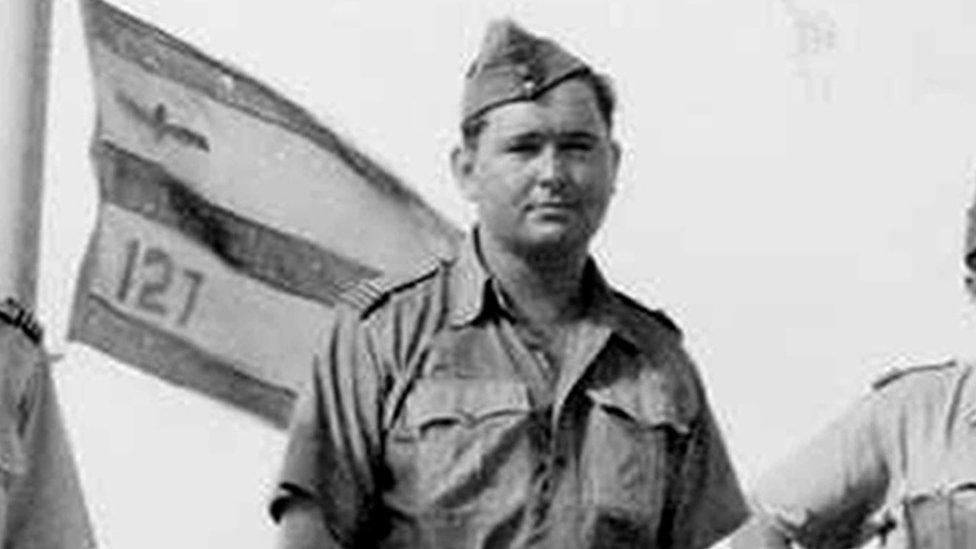'Brave' WW2 pilot's death was an accident, inquest finds
- Published
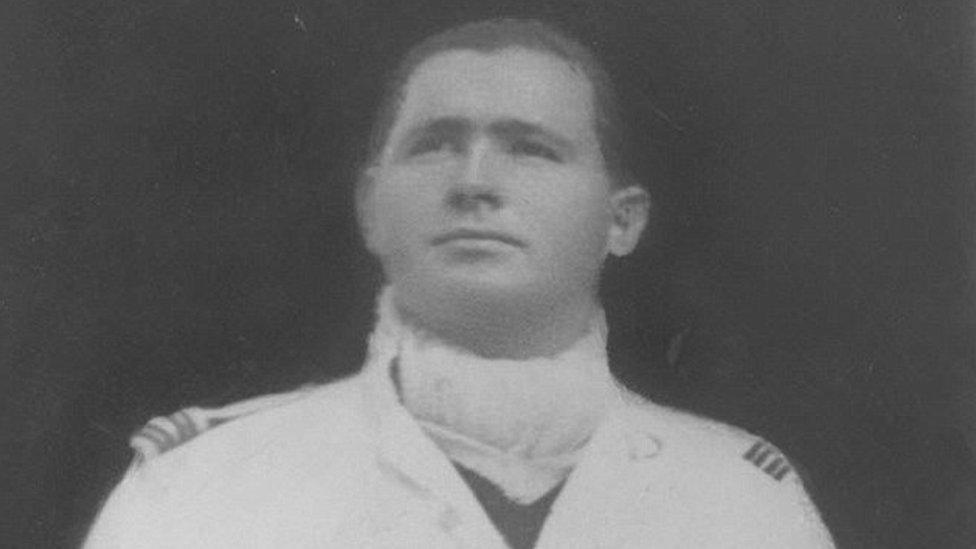
Sqn Ldr Daniel Cremin died in 1942 while flying at night over Cornwall
A "very brave" young pilot died accidentally in a mid-air Spitfire crash during a wartime training exercise, a coroner has found.
Sqn Ldr Daniel Cremin, 25, died on 24 March 1942 when his plane collided with another and crashed in fields near St Erth, Cornwall.
His remains were found last year, when a metal detectorist uncovered fragments of bone in a field.
An inquest in Truro found Sqn Ldr Cremin's death was accidental.
Barrie van den Berg, assistant coroner for Cornwall and the Isles of Scilly, described the inquest as "very interesting" and "unusual".
The coroner said: "Daniel Edward Cremin died as a result of a mid-air collision with another Spitfire."
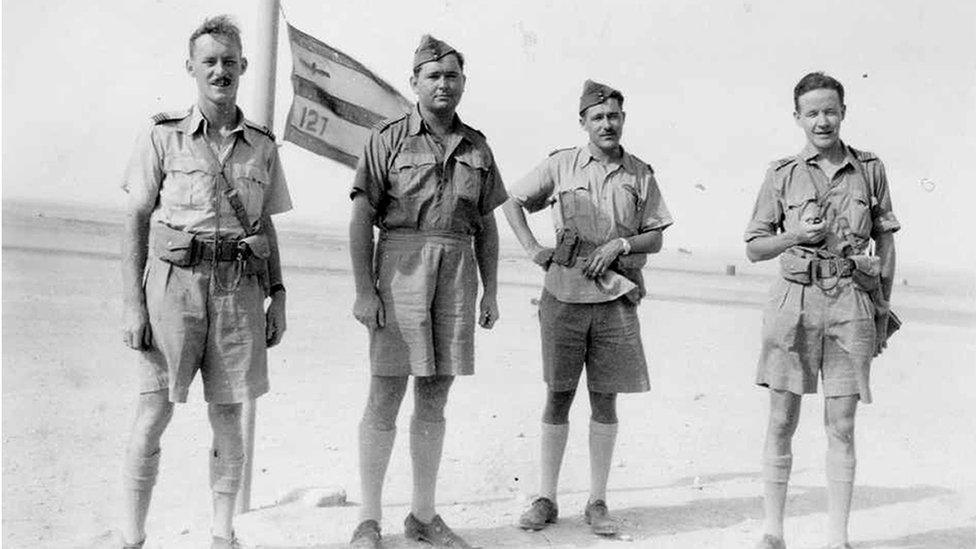
Sqn Ldr Cremin (second left) was awarded a Distinguished Flying Cross in 1941
Det Sgt Nigel Green told the inquest Sqn Ldr Cremin and Sgt William Norman took off from RAF Portreath on a night flying exercise, having just taken delivery of the latest version of the Spitfire.
He said an inquiry at the time found Sgt Norman, who was also killed, had "misjudged" the distance between their planes and flown into the side of Sqn Ldr Cremin's.
The inquest heard fragments of human pelvis, femur and ulna were found after metal detectorist Stuart Palmer dug down about 4ft (1.2m) at the crash site on 26 June last year.
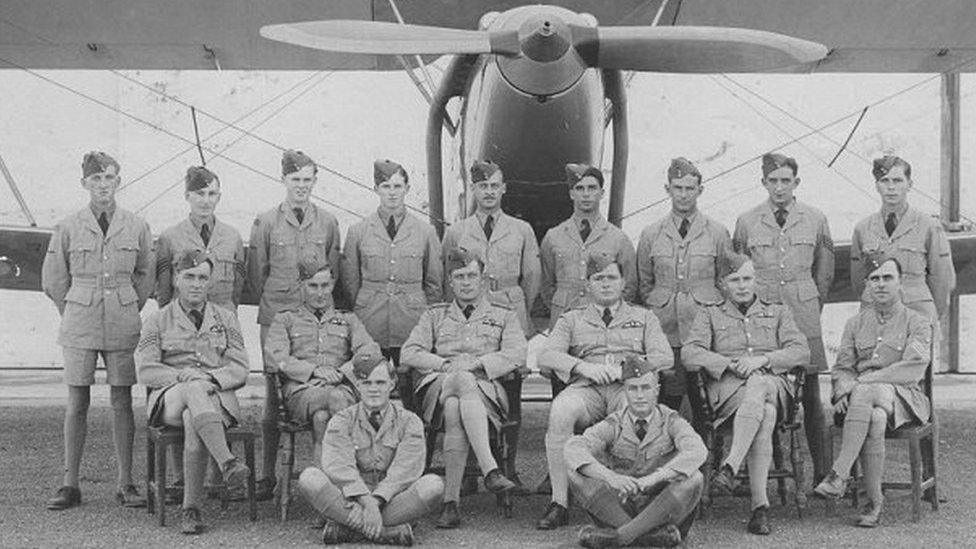
Sqn Ldr Cremin with other RAF pilots
The remains were DNA tested and then interred in Sqn Ldr Cremin's grave at the Wardour Roman Catholic Cemetery in Tisbury, Wiltshire in November.
His son Dr Mark Cremin was aged two and had only met his father once when he died.
Dr Cremin, a retired University of Kent English lecturer from East Sussex, described the recent interment of his father's bones as an "important moment".
The 78-year-old, who named his oldest son after his father, said: "In a way it really helped me to draw a line. I missed not having a father all my life."
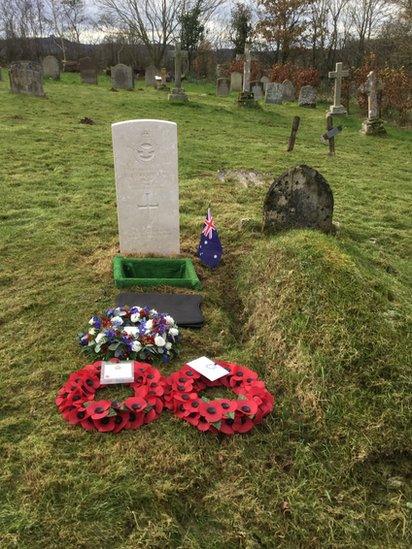
Sqn Ldr Cremin's bones have now been interred in his original grave after being discovered last year

Sqn Ldr Daniel Cremin
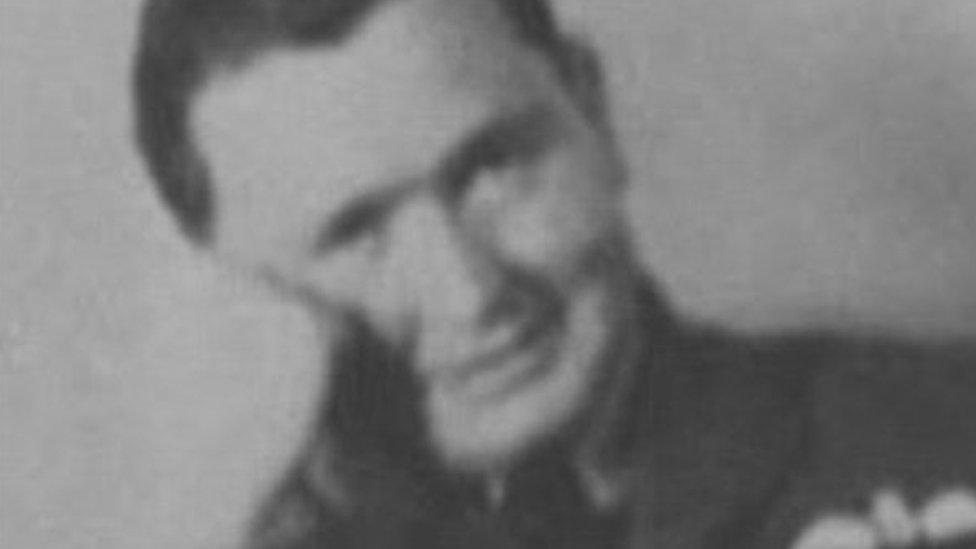
Born in Sydney, Australia, in 1917
Commissioned in the Royal Air Force in 1938 as part of a pilot exchange scheme between Britain and Australia
Served in the Middle East where he met - and in 1939 - secretly married Patricia Whitemore near Cairo
Mrs Cremin returned to her family in Wiltshire when war broke out and gave birth to their son, Mark, in February 1940
Sqn Ldr Cremin was awarded the Distinguished Flying Cross in 1941 for his bravery during the siege of Habbaniya in Iraq in 1941
Later that year he met his baby son for the first time before being posted to RAF Portreath to 66 Squadron

Tracey Bowers, from the MOD's Joint Casualty and Centre, which arranged the DNA testing and the funeral ceremony, said Sqn Ldr Cremin "was a very brave young man".
- Published13 July 2018
